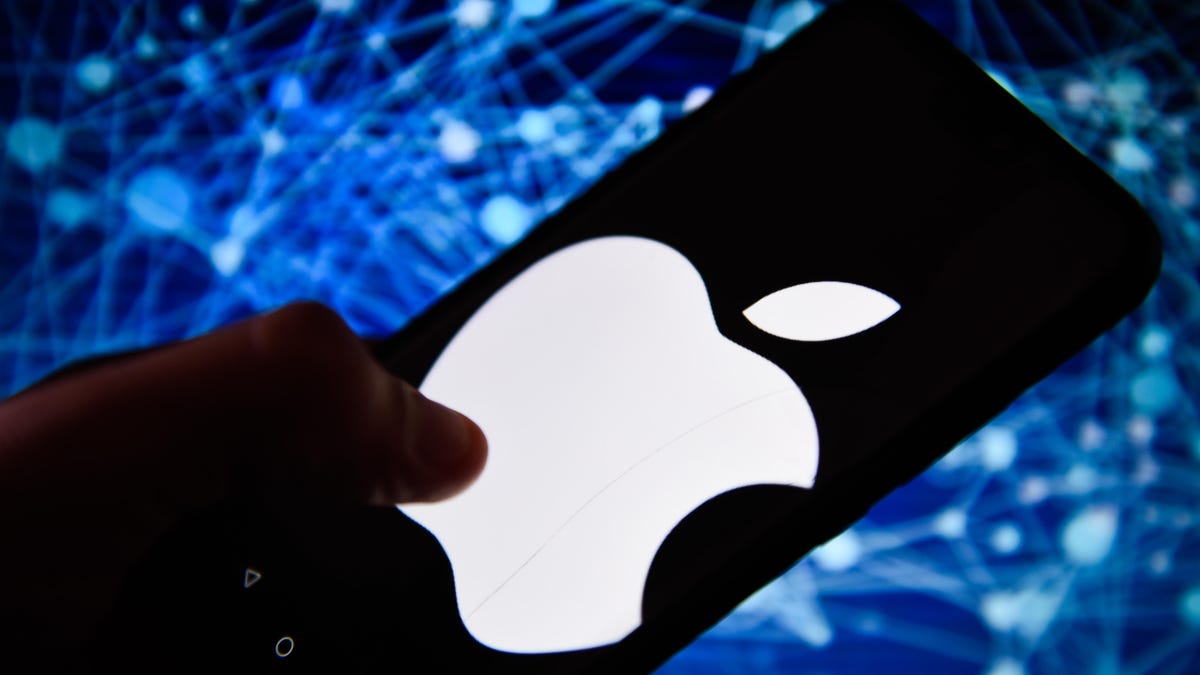Apple's latest hire might help burnish its AI image
The iPhone maker's AI efforts haven't gained attention like Google and Facebook's have. That might change.

Apple's pushing further into AI.
The next time you think of Apple and artificial intelligence, it might be about more than how frustrating Siri can be.
The tech giant poached Ian Goodfellow, a high-profile scientist in the artificial intelligence world, from Google last month. CNBC spotted the move when Goodfellow, who helped invent a new approach to the technology, updated his LinkedIn page to indicate he's working as Apple's "director of machine learning" at its secretive "Special Projects" group.
Goodfellow isn't the only big-name hire Apple's poached from Google. Last year, the company lured John Giannandrea away from its rival, where he'd been the head of search. At Apple, Giannandrea handles Siri, as well as its machine learning technology for app developers.
"Machine learning and AI are important to Apple's future as they are fundamentally changing the way people interact with technology, and already helping our customers live better lives," Apple CEO Tim Cook said in a statement last year, when promoting Giannandrea to senior vice president of machine learning and artificial intelligence strategy.
Apple didn't respond to a request for comment about Goodfellow.
The hires are the latest signs Apple is pushing more heavily into the world of AI, where it isn't broadly viewed as a leader the way Google and Facebook are. AI is increasingly seen as a key to a new way of computing that will allow machines to identify people in video feeds, drive our cars and anticipate our schedules.
Apple's Siri was one of the first voice assistants offered to the public when it was released in 2011. But it's struggled to keep up with a growing list of competitors.
Amazon's Alexa, for example, has stood out as an easy way to connect with smart appliances, such as light switches, security systems and even your car. Meanwhile, Google's made waves turning its assistant into a live language translator. Its Duplex feature helps people schedule appointments by calling businesses and negotiating appointment times for you. Facebook's AI is being used to more quickly identify extremism and bad behavior. And Microsoft built its AI into an app to help the blind by describing anything a phone's camera is pointed at.
Apple "saw Siri as a feature rather than a platform," said Creative Strategies analyst Carolina Milanesi.
One example, she said, is that Apple's Siri works better on her iPhone because it has access to apps and information she keeps on it. But Siri isn't as good on Apple's $299 HomePod speaker because the company hasn't created robust ways for its assistant to send information between her phone and other Siri-powered devices.
Apple's latest hirings and announcements suggest the company is now taking AI technologies like Siri more seriously, she added. "There is no question in my mind that Apple is either rethinking Siri or accelerating its effort," she said.
More intelligence
Apple pitched the AI smarts as a major feature of its A12 Bionic chip for the iPhone and iPad.
When people think of Apple AI, they typically think of Siri. But there are other AI efforts underway.
For example, the company's A12 Bionic chip, which powers the $999 iPhone XS and latest $799 iPad Pro , includes a "neural engine." Apple says the engine bolsters the photos you take and the games you play. It also helps the device do a better job with augmented reality, which overlays computer images like a photo filter on the real world.
Those technologies extend to the software powering Apple's iPhone too. Apple said artificial intelligence technologies help to power its Face ID, which identifies you with a sensor in order to unlock your phone .
Silicon Valley's churn
Apple's high profile hires aren't happening in a vacuum. There's constant churn between Apple, Facebook, Google, Twitter, Microsoft, Amazon and the many startups that dot the San Francisco Bay Area and the larger West Coast.
It's likely helped Apple that Google, in particular, has been criticized for its AI efforts. Last year, the search giant's employees protested against Google's involvement in Project Maven, a Pentagon initiative to use AI to improve the analysis of drone footage. And last month, General Joseph Dunford, chairman of the Joint Chiefs of Staff, said Google's AI work in China is "indirectly benefiting the Chinese military."
Google's AI tech gets attention, but also courts controversy.
Analysts say high profile poachings, like Apple's with Giannandrea and Goodfellow, also help the company with further recruiting because big names often act as a magnet drawing their colleagues from one company to another.
Another way Apple can bulk up its efforts is with acquisitions. Apple was said to have bought an AI-powered voice startup called PullString in February, for example. Purchases like that typically come with new intellectual property (IP), in the form of new apps, code and patents. Cook said last month that Apple purchased 18 companies in 2018.
"We're constantly on the market looking for great IP and fantastic people," Cook said at the time. "We're very confident about our future."
CNET's Richard Nieva contributed to this report.

